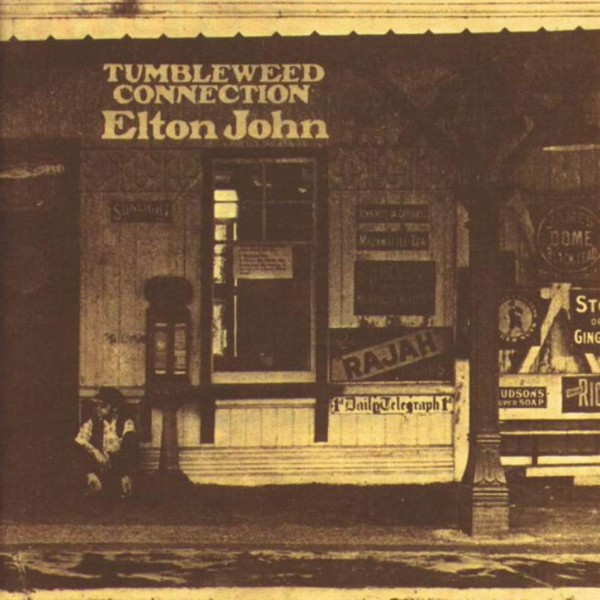There are some who will always view Elton John with suspicion, or even disdain. With his stocky frame, his bad wigs and a reputation for over-reacting when things don’t go his way. Add to this his predilection for writing musicals, bank-rolling films about garden gnomes and his all too public love of all things monarchy and it’s perhaps easy to see exactly why he’s not taken so seriously as a musician these days. Go back far enough and momentarily lay your preconceptions behind you and you may find your opinions on the former Reg Dwight starting to shift.
Before the Tantrum and Tiara years, before the self-confessed drug hell years, before even the glamtastic years, Elton John was a young performer on the rise with his lyricist creative partner Bernie Taupin. It was the start of the 70s, singer songwriters were unfeasibly fashionable and Elton was in thrall to the likes of The Band and the country-soul of Leon Russell. Combine this with Taupin’s love of cowboy iconography, it was almost inevitable that they would release an album based around the American West. Tumbleweed Connection is that album and it’s an album that even Elton’s most fiercest critics have to admit isn’t too bad.
Perhaps surprisingly given its reputation, Tumbleweed Connection doesn’t have any of Elton’s big hits on it, indeed, anyone not familiar with the album would struggle to name any of the songs on it. In that sense it could be argued that this is Elton’s ‘cult’ album, the one where commerciality and hit singles were eschewed in favour of recording the best material they had at the time. These days that approach is fashionable, but back then, it was pretty much commercial suicide.
Tumbleweed Connection opens with “Ballad of a Well-Known Gun”, which, with it’s debt to Leon Russell, sounds like its something that Joe Cocker could have seamlessly added to his Mad Dogs and Englishmen set list. After this, initial listens to Tumbleweed Connection can mislead you into thinking that it’s a rather bland album. Patience is rewarded though as you realise that a song like “Country Comfort” isn’t as syrupy and sickly as you had initially felt, but it’s something of a gem. Other songs like “Where to Now St. Peter” and “Amoreena” also take a while to reveal just what great tunes they are, but once they have, the whole album opens up and you realise that it’s far better than you had initially given it credit for. It closes with “Burn Down the Mission”, one of Elton John and Bernie Taupin’s best songs and a fine way to bring the curtain down on an album which you feel you’ve been on something of a journey with.
It is notable that even Elton himself has a high regard for Tumbleweed Connection, even to the point where he collaborated with Leon Russell, dragging him back out of obscurity for the well-received The Union album a few years back. Infact, drama-queen reputation aside, Elton John has steadily been rebuilding his credibility over the last decade or so, very much with an eye on the past and keeping in mind what had made an album like Tumbleweed Connection so special in the first place.
Tumbleweed Connection is in many ways one of the keystones to Elton John’s career, as it gave him a platform from which to launch himself as one of the biggest stars of the early to mid 70s. Along with Goodbye Yellow Brick Road, it is perhaps his most durable album and one which leaves you oddly satisfied musically. An album to ride off into the sunset to.














1 Comment